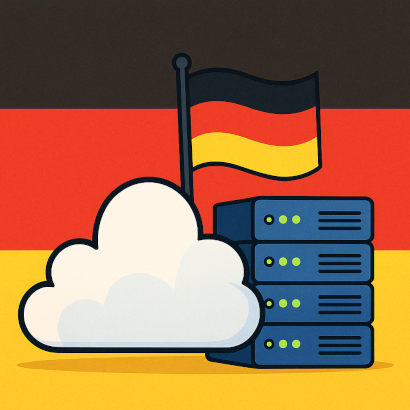
Cloudflare is one of the largest internet service providers in the world. Many websites rely on Cloudflare because it offers three major advantages:
- 🚀 Faster loading times thanks to servers distributed around the globe
- 🛡️ Protection against attacks, such as DDoS
- 🔁 Stable availability, even under heavy traffic
Because Cloudflare delivers these features efficiently and at a good price, an enormous number of websites depend on it. But that popularity also creates a risk: When Cloudflare goes down, many sites go down with it.
🧩 Why self-hosted servers are often less affected
If you host your website or application on your own server, you’re far less dependent on big platforms like Cloudflare. That means:
🔐 More control over your own security
With simple measures such as:
- 🔑 SSH keys instead of simple passwords
- 🚫 Firewalls to block unwanted access
- 🛡️ Fail2Ban, which automatically blocks repeated attack attempts
you can secure your server very effectively—without relying on external security services.
🕹️ More control & more reliability
I host my servers at Hetzner in Falkenstein, Germany 🇩🇪 — and during the Cloudflare outage, not a single second of downtime occurred.
Everything continued to run perfectly.
To me, this is a perfect example of digital sovereignty in Germany: Not depending on large U.S. providers, but maintaining your own stable, local infrastructure.
⚠️ Of course, nothing is 100% risk-free
✨ Running your own server doesn’t mean nothing can ever go wrong.
Self-hosted servers can also experience:
- outages 🛑
- overload 📈
- network or power issues 🔌
But the key difference is: you have the responsibility— and the control.
🎯 Conclusion
The Cloudflare outage shows how vulnerable large, centralized internet services can be. If you host your servers yourself—such as at Hetzner in Germany—and secure them properly, you often end up with a more stable and sovereign solution. 🧭
